We echo our ancestors’ history everyday through our accents and spoken language. Accents are a filtered connection to how those before us spoke — well, for many people, that is.
As for me — born in the Ozarks with much of my life in New York City — you’d think I would have pretty bizarre accent. Instead I’ve somehow managed a mostly average, spice-less voice with few registers of the past.
The ‘newscasters’ voice, aka General American English, is perhaps the most frequently heard accent in the country, partly due to the influence of pop culture, partly with standardized American education.
But even devoid of specific New York, New England, or Southern influences, even my voice tells a story. And even my very generic voice, in a roundabout way, was born in New York.
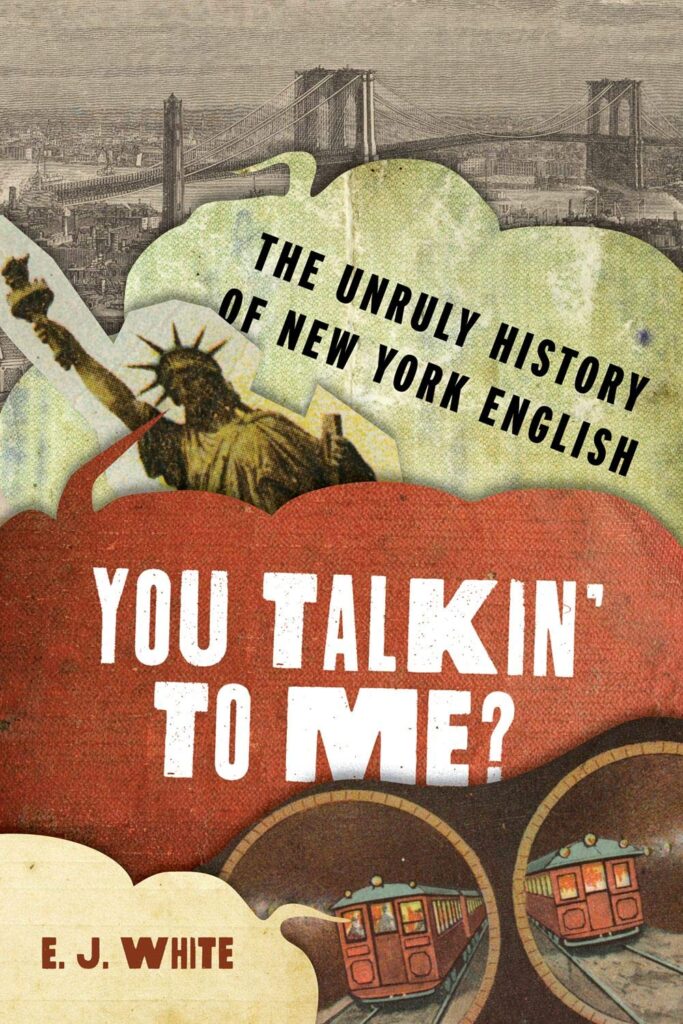
YOU TALKIN’ TO ME?
The Unruly History of New York English
E.J. White
Oxford University Press
In the eye-opening (or is that ear-opening) You Talkin’ to Me, exploring the idiosyncrasies of New York City English, author and language educator E.J. White brings together the accents, vocabulary and place names of the modern city to illustrate the sophisticated ways in which we communicate here.
It might sound unusual to refer to accents as ‘sophisticated’ — we’ve been trained to consider them the opposite — but as White charts throughout her book, our ways of speaking are more expressive and rich when they reveal something about ourselves and our past.
Below: Students in an elocution class
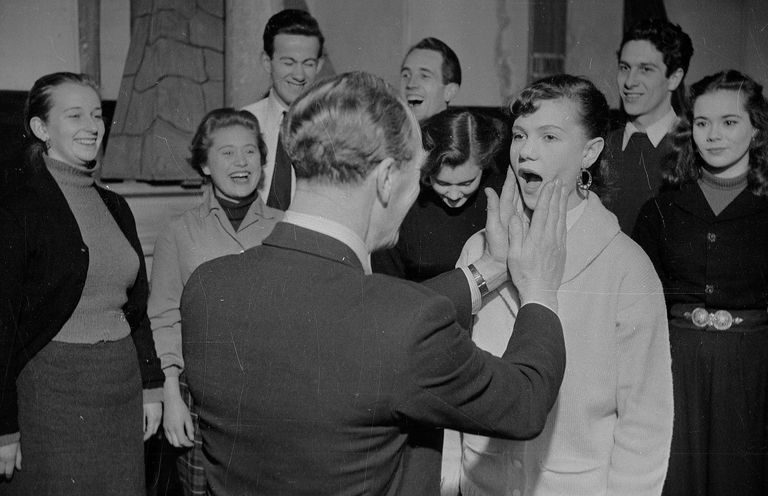
Teaching the sound of English was a priority for New York City schools during the early 20th century when classes became filled with the children of immigrants. These young accented voices, according to some instructors, were un-American.
A 1931 textbook, for example, describes the “characteristic racial errors that students of various ethnicities are apt to make in their speech, using language that suggests that nonstandard speech derives from flaws of ethnic temperament.”
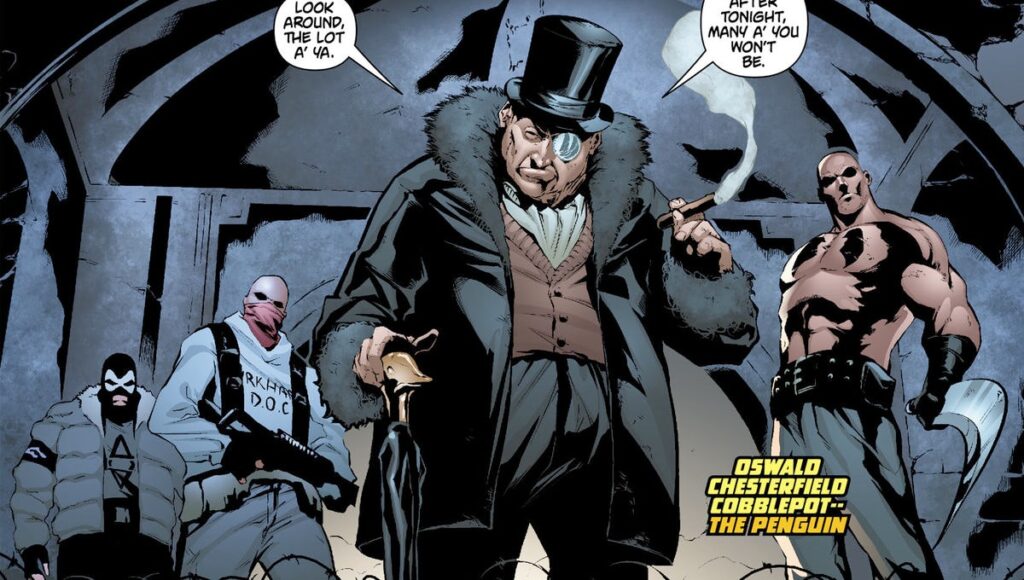
New York accents, borne from multiple ethnic influences, are often derided in culture to this day. “In all his iterations,” writes White, “Batman speaks Standard American English. Well, it’s to be expected; Bruce Wayne attended fancy prep schools and then Ivy League. But in every iteration, the thugs, mooks and henchmen who populate most of the city’s underclass use New York City features in their speech.”
Another interesting chapter explores code switching or the relationship of accents and speech patterns within New York City communities.
Here, too, you can find evidence of city’s immigration history, navigating arenas of status and class, especially in the richness of Puerto Rican English or in the dramatic intricacies of gay men’s speech.
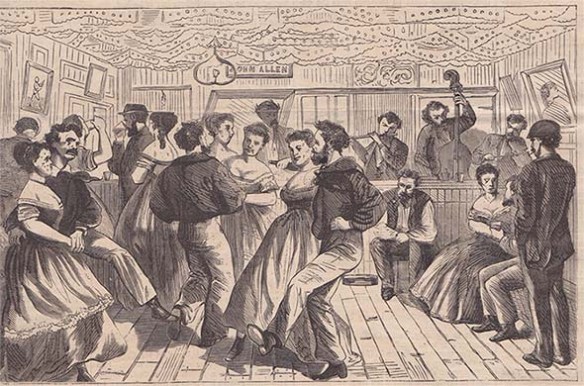
But New York English is a gift that the world enjoys. White entertainingly runs through dozens of phrases that have connections to Old New York. She even reenforces one of my favorite stories ever — that the word hooker comes from the old waterfront neighborhood Corlear’s Hook.
“In 1839, the Hook, as locals often called the neighborhood, held ‘thirty-two houses of assignation and eighty-seven brothels’ — this according to a guidebook published that year, which attests, at the very least, to the reputation the neighborhood had mad for itself.”
How could a neighborhood name — which few really reference today — have such influence upon language? “In short, the parceling of the city into districts, along with the crowding together of social and economic classes, led from the naming of places to the power of places to name.”
And as for the commonplace ‘general American’ accent — the accent you hear on news networks and Friends?
That stems from “newscasters, college graduates and actors in film and television” adhering to a rhotic standard, “a standard that signified Americanness in large part by distinguishing itself form the speech of America’s capital of immigration. American sound the way they do because New Yorkers sounded the way they do.”

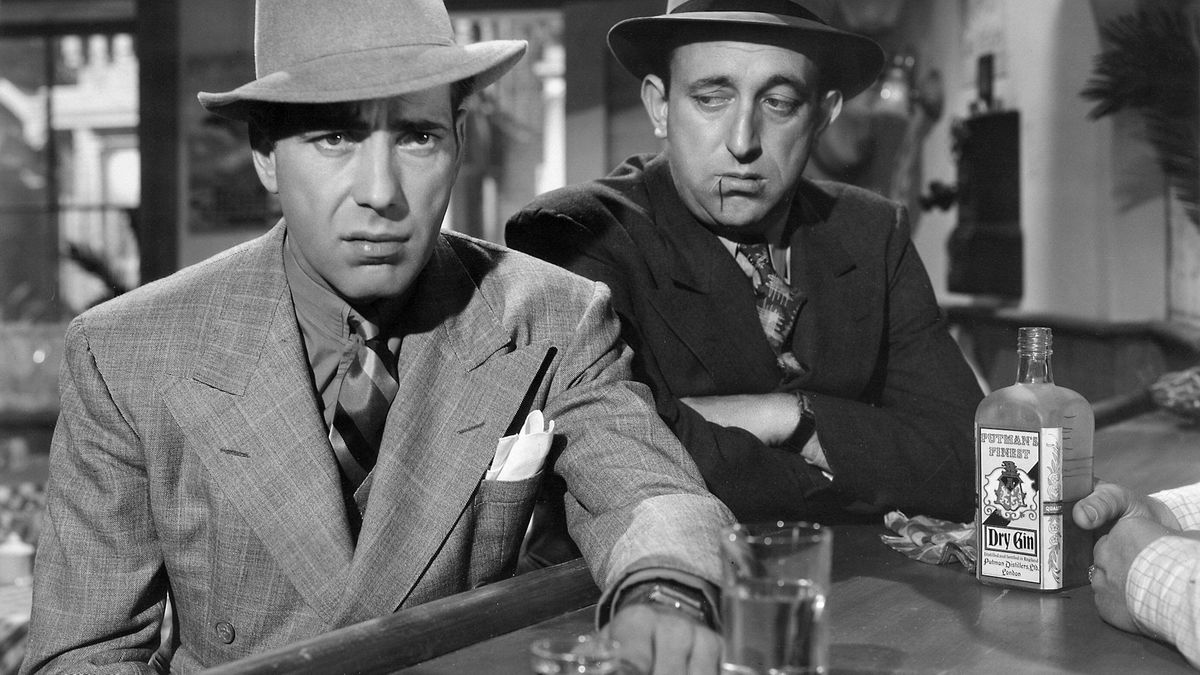
2 replies on “You Talkin’ To Me? A new book explores the way New Yorkers speak”
As a lover of all things New York, I recently heard myself speak in a short film and I was stunned to hear how strong my second generation Bronx accent was.
My husband was born on Long Island with a mother from Little Rock, Arkansas and a father from Brooklyn. Neither he nor any of his siblings have any discerning accent at all! Go figure!
Is there a Bowery Boys podcast about New York accents? And can the accent of for instance the Marx Brothers still be heard today?